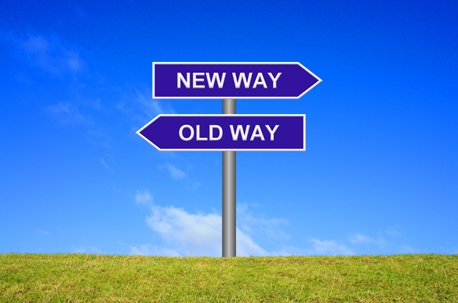We can be cognitive misers, with limited time and energy to focus on every decision. For ease, we often just accept defaults, or stick with what we’ve always done – the status quo –without considering other, possibly better options.
Status quo bias is also often the reason why we eat the same dish at our favourite restaurant, go to the same place on holiday or stick with the same bank or mobile phone operator.
Status quo bias is often linked to other cognitive biases too, such as:
- Choice paralysis: If people are overwhelmed by many options to choose from, research has shown that they are likely to stick with what they know or what they’ve always done as a safe option – or simply not make any choice, choosing to delay the decision and do nothing.
- Loss Aversion: The potential losses we face from switching away from the status quo and doing something different are weighed more heavily than the potential gains; as a result, people generally prefer to stick to what they already know if it is largely satisfactory.
Recognition is the first step
Some experts in behavioural science believe that if we are aware of when our biases are affecting our everyday lives we are half way to changing our behaviour for the better. So, if people were able to reflect on how they or others they knew might be being affected by cognitive biases in their lives, that is a step forward. For example, someone might note that a friend anxious about moving house might be suffering from status quo bias and inertia.
However, Nobel Laureate Daniel Kahneman actually believes that despite our increased understanding of behaviour and decision-making it is difficult to really change one’s own behaviour in order to be less biased.
Really the most that we can hope for “is that it can change the quality of gossip”. So if you are chatting to a friend about a mutual friend’s lack of motivation to go to the gym, you might reason that it is due to her tendency to discount the future. The lure of ‘now’ is stronger than the health and well-being gains she will receive in the future.
Proactive steps to push back
Status quo bias can often mean we fall prey to lazy decision-making, by considering only the option we thought of at the time, or the solution we used before. The more tired, time pressed or stressed we are, the more likely it is we will fall back on the status quo, rather than thinking laterally about a more creative solution.
Jack Soll and John Payne at Duke University and Katy Milkman at the Wharton School of Business have compiled a number of strategies and rules of thumb to reduce these decision-making traps and ensure we generate and choose alternative options to the status quo.
These include:
- Rest, then think and solve: We are more likely to come up with a different, creative and altogether better solution when we are rested and not rushing.
- Apply the ‘vanishing options’ test: Imagine you can’t choose the status quo as usual – the option you are considering or have done before. What might you do instead? This will force you away from the status quo and allow you to think of another, possibly better solution.
- Use references to anchor to: By compiling a number of options to choose from we can avoid evaluating any option in isolation. We need reference points to make a decision.
The author and journalist Sydney J. Harris once said “Our dilemma is that we hate change and love itat the same time; what we really want is for things to remain the same but get better.”
But strategies such as the ones above not only allow us to see how status quo bias might be limiting our lives but also gives us a structure to help to push against the status quo and improve our lives for the better. We might even grow to love change.
Crawford Hollingworth is at The Behavioural Architects








1 Comment
Annie Pettit
9 years ago
This is one of the big reasons that I think marketing research takes so much time to adopt and internalize new methods. It takes a massive amount of brain work to get over the status quo. That's why I love recommendation #2 - imagine you could never use your favourite methodology again. What would you do instead? First, I would cry because I love surveys. Then I would get over it because there are at least 20 other fabulous tools just waiting to be used to their full advantage.
Like Reply Report